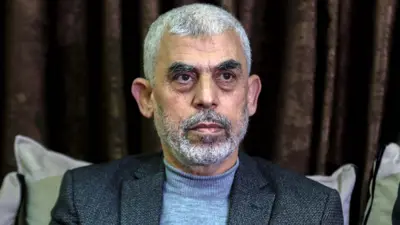We've updated our Privacy and Cookies Policy
We've made some important changes to our Privacy and Cookies Policy and we want you to know what this means for you and your data.
Theranos will shut labs and cut 40% staff
Image source, Theranos
Controversial US blood-testing company Theranos is shutting clinical and medical facilities and slashing jobs, three months after its founder was banned from owning a laboratory.
Theranos pioneered new cheap and quick tests, but regulators investigated the firm after ex-employees told a newspaper the tests were unreliable.
Founder Elizabeth Holmes once ranked as America's richest self-made woman.
This summer, Forbes magazine estimated her worth as next to nothing.
In a letter on the company's website, the facilities' closures would affect 340 staff, 40% of the workforce.
She said the company's work would continue: "After many months spent assessing our strengths and addressing our weaknesses, we have moved to structure our company around the model best aligned with our core values and mission.
"We will return our undivided attention to our miniLab [portable blood-testing product] platform. Our ultimate goal is to commercialise miniaturised, automated laboratories capable of small-volume sample testing, with an emphasis on vulnerable patient populations, including oncology, paediatrics and intensive care."
Investigation
It comes after a controversial few years for the Silicon Valley firm, which was launched by Ms Holmes in 2003 and grew to a valuation of $9bn by the summer of 2014.
The firm said that its Edison device could test for conditions such as cancer and cholesterol with just a few drops of blood obtained via a finger-prick, rather than the vials needed through intravenous extraction.
But in October 2015 a report by The Wall Street Journal claimed that .
This led to an investigation by the US government's Centers for Medicare and Medicaid Services (CMS), which later in California and banned Ms Holmes from running a lab for at least two years.
Theranos is appealing some of the CMS's sanctions, but has by bodies such as the Securities and Exchange Commission and Food and Drug Administration.
Final nail?
Nikhil Krishnan, a technology industry analyst at CB Insights, said the closures were inevitable after the firm's troubles.
"Once their retail clinic partners stopped their ties with the company and entire batches of tests were deemed faulty, it became increasingly clear that the company would have to exit the direct-to-consumer blood testing market."
He added: "The company has to completely overhaul its image in the medical and scientific communities and work very closely with regulatory bodies to ensure every aspect of its device is sound.
"Even then it's unclear if they will ever be able to fix their reputation."
Top Stories
More to explore
Most read
Content is not available








